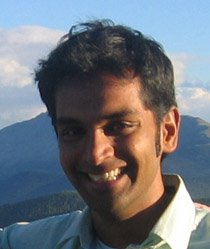On Destruction of Molecules and Men.
I had the privelege of attending Dr. Aaron Ciechanover's lecture yesterday at Northwestern University on his decades-long voyage of discovery regarding the ubiquitin system. For these endeavors, he won the Nobel Prize in Chemistry in 2004. His biography is a fascinating read.
What is the ubiquitin system? It is not one thing really. Rather, it is a family of proteins that Dr. Ciechanover estimates to comprise between 7-10% of the entire human genome. This makes it by far the largest family of proteins in the entire genome. These proteins work to specifically degrade other intracellular proteins, in order to end molecular signals within the cell, as well as to remove excess protein products. This, I discovered, is an incredibly important system of proteins that comprise an important set of targets for drug design.
This -- the removal of the old to make way for the new -- is good destruction.
What is bad destruction? Well, Dr. Ciechanover grew up in Haifa, Israel and has spent the majority of his professional career in that city at the Rappaport Family Institute for Research in the Medical Sciences at Technion - Israel Institute of Technology. For those of you who have been following the news over the past month in the Middle East, Haifa was the target of deadly rocket attacks from Hezbollah, in Lebanon. For that matter, Beirut, the capital of Lebanon, also suffered deadly civilian casualties as a result of Israeli Defense Force bombardment.
I don't care what your view is on the conflict between Israel and Hezbollah-- no matter where you fall, you definitely must lament the death of innocents on both sides.
This --the irrevocable rending of the fabric of human life -- is bad destruction.
The juxtaposition in Haifa of the discovery of the ubiquitin system (the good destruction by molecules of fellow molecules) and the rain of terrorist bombs (the bad destruction of men by fellow men) really brought home to me Sir Winston Churchill's quote:
"To build may have to be the slow and laborious task of years. To destroy can be the thoughtless act of a single day."
I think that this day of choice is dawning for humanity. Will we today thoughtlessly destroy the world? Or will we take up the slow laborious task of years? Are we poised today on the brink of a golden age of discovery? Or instead are we unleashing a dark period of decay?
There are those who want to make the world better. And there are those who literally want to unmake the world. I hope that the thoughtful prevail.
But right now, the score in Haifa is 1-1.
What is the ubiquitin system? It is not one thing really. Rather, it is a family of proteins that Dr. Ciechanover estimates to comprise between 7-10% of the entire human genome. This makes it by far the largest family of proteins in the entire genome. These proteins work to specifically degrade other intracellular proteins, in order to end molecular signals within the cell, as well as to remove excess protein products. This, I discovered, is an incredibly important system of proteins that comprise an important set of targets for drug design.
This -- the removal of the old to make way for the new -- is good destruction.
What is bad destruction? Well, Dr. Ciechanover grew up in Haifa, Israel and has spent the majority of his professional career in that city at the Rappaport Family Institute for Research in the Medical Sciences at Technion - Israel Institute of Technology. For those of you who have been following the news over the past month in the Middle East, Haifa was the target of deadly rocket attacks from Hezbollah, in Lebanon. For that matter, Beirut, the capital of Lebanon, also suffered deadly civilian casualties as a result of Israeli Defense Force bombardment.
I don't care what your view is on the conflict between Israel and Hezbollah-- no matter where you fall, you definitely must lament the death of innocents on both sides.
This --the irrevocable rending of the fabric of human life -- is bad destruction.
The juxtaposition in Haifa of the discovery of the ubiquitin system (the good destruction by molecules of fellow molecules) and the rain of terrorist bombs (the bad destruction of men by fellow men) really brought home to me Sir Winston Churchill's quote:
"To build may have to be the slow and laborious task of years. To destroy can be the thoughtless act of a single day."
I think that this day of choice is dawning for humanity. Will we today thoughtlessly destroy the world? Or will we take up the slow laborious task of years? Are we poised today on the brink of a golden age of discovery? Or instead are we unleashing a dark period of decay?
There are those who want to make the world better. And there are those who literally want to unmake the world. I hope that the thoughtful prevail.
But right now, the score in Haifa is 1-1.


3 Comments:
Hello and Welcome,
I found you through Dr. Wes. I'm not a medical professional, but my brother is an internist and my sister an RN. I guess it is in my blood to want to read everything medical.There are several good medical bloggers from around the Chicago area. Dr. Grumet from (In My Humble Opinion) is also blogging.
Your blog is very interesting!
Thanks for the words of encouragement cathy! I will check out Dr. Grumet's blog.
Hey I saw you mentioned ubiquitin so I thought you might be interested in Science's current webinar:
The Ubiquitin-Proteasome Pathway
Post a Comment
<< Home